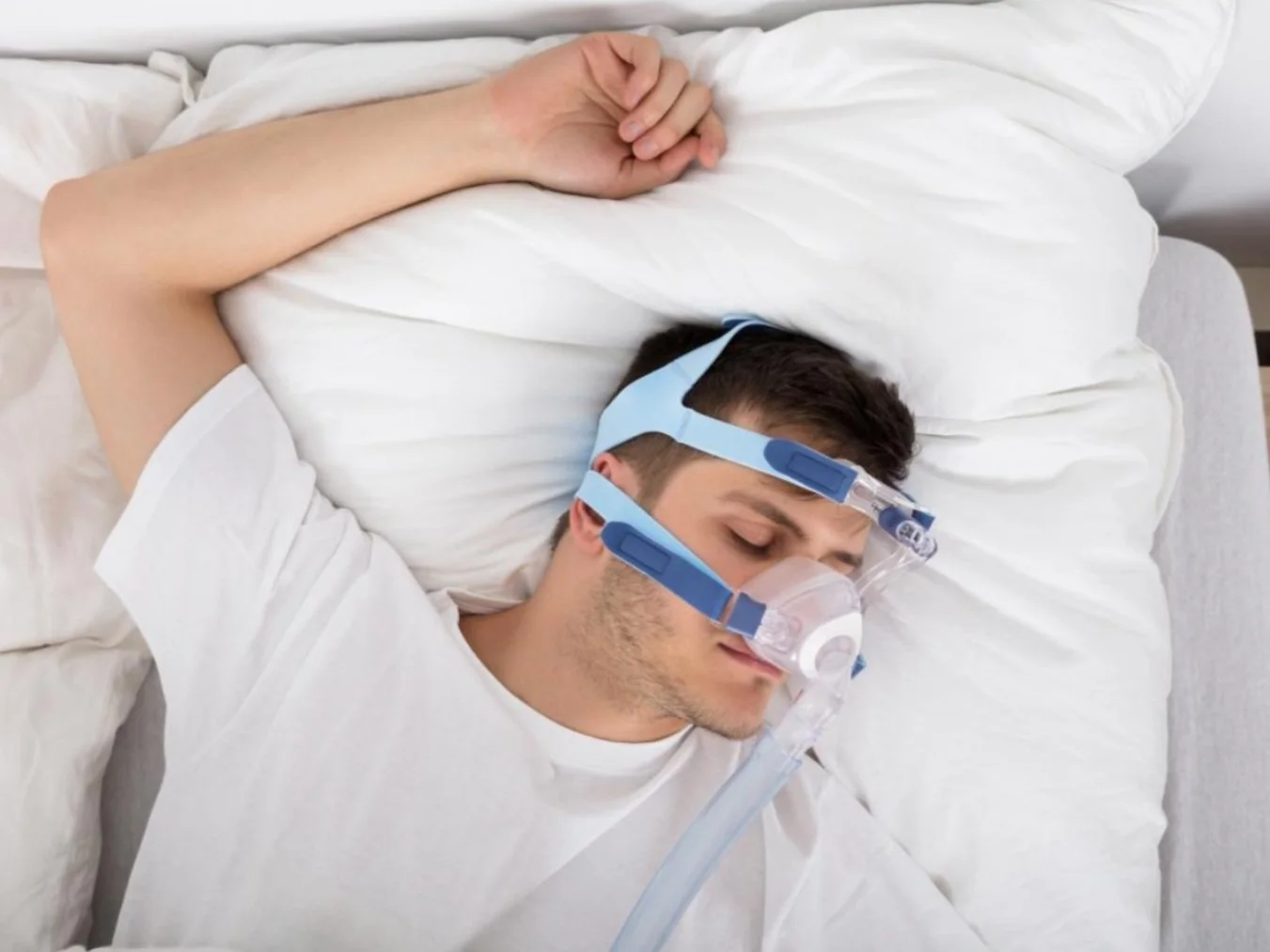
Obstructive Sleep Apnoea
CPAP is no longer the only option to manage this serious medical disorder.
-
What is Sleep Apnoea?
Obstructive Sleep Apnoea (often just called Sleep Apnoea), is a common problem that affects a person’s breathing during sleep. It occurs when your muscles relax, causing the soft tissues at the back of your throat to collapse and block your airway.
This prevents airflow and causes breathing to stop for up to a minute at a time, hundreds of times a night. This feeling of suffocation makes your brain wake up from a deep sleep in order to take a few breaths (often sounding like choking or gasping for air). As you fall back into a deep sleep your body will begin to relax, closing the airway down yet again and creating a vicious cycle reoccurring throughout the night.
-
Symptoms of Sleep Apnoea.
Most people are not even aware that they suffer from this serious medical condition which can cause high blood pressure, heart disease, stroke and even premature death. It is also a significant contributor of car accidents due to falling asleep.
Symptoms include:
snoring
pauses in breathing, choking or gasping sounds
feeling unrefreshed in the morning and being tired during the day
morning headaches and difficulty focusing or remembering things
waking up often to go to the bathroom
-
How do I know if I have Sleep Apnoea?
You can visit our clinic or arrange a virtual consultation for a free screening to see if you are at risk of sleep apnoea. However, the only way to tell for certain is to do an overnight sleep study. From a sleep study, we can tell if you have sleep apnoea, as well as the severity of it, which is an important consideration when choosing the best treatment for your individual case.
Thanks to advancements in technology, a sleep study can now be done in the comfort of your own home. This is a reliable, straight forward and cost effective way to diagnose sleep apnoea without having to spend a night in a sleep centre.
Understanding Obstructive Sleep Apnoea
Treatment for Sleep Apnoea
-

CPAP
CPAP therapy involves wearing a face mask connected by tubes to a constantly running machine. This machine delivers pressurised air into the mask to keep the airway open when asleep.
CPAP is highly effective at managing Sleep Apnoea and has traditionally been the treatment of choice.
Unfortunately, a significant number of people are unable to tolerate the mask or the noise and those who can, tend to only wear it for a few hours a night.
-

Oral Appliance Therapy
Oral Appliance Therapy uses a mouth guard like device to maintain an open airway by supporting the jaw slightly forward. This is an effective alternative treatment for Sleep Apnoea and is widely regarded by experts in the field to be the most comfortable option.
The Oral Appliances provided by Sleep Matters are state-of-the-art, custom-made, 3D printed and fully adjustable. They are extremely thin (1mm), comfortable and allow for speaking, sipping water and free movement of the jaw.
-

Surgery
Surgery may involve significant jaw repositioning, as well as cutting and tightening the soft tissues in the throat. It has varying side effects and differing rates of success.
Surgery is not usually a first-line treatment for Sleep Apnoea and only regarded as a last resort.
Other helpful options
Weight Loss
Carrying excess weight results in fat deposits in and around the tongue, soft palate and neck. This results in narrowing of the airway and can contribute to snoring and sleep apnoea. Weight loss can reduce these fat deposits, thereby enlarging the airway and reducing snoring and sleep apnoea.
Although recommended and beneficial, weight loss alone is usually not enough to overcome all problematic snoring and sleep apnoea.
Positional Therapy
Many people have airway collapse that occurs when they sleep on their back. Avoiding sleeping on your back or elevating your head or the head of your bed can be very helpful.
There are various methods that can help you sleep on your side. We will discuss these with you in detail during our consultations.
Substances to Avoid
Alcohol and most sleeping pills relax the muscles of the throat and can worsen snoring and sleep apnoea. You should avoid alcohol for at least three hours prior to bedtime.
Smoking and caffeine can also worsen snoring and sleep apnoea, due to swelling of the nasal and throat tissues.
